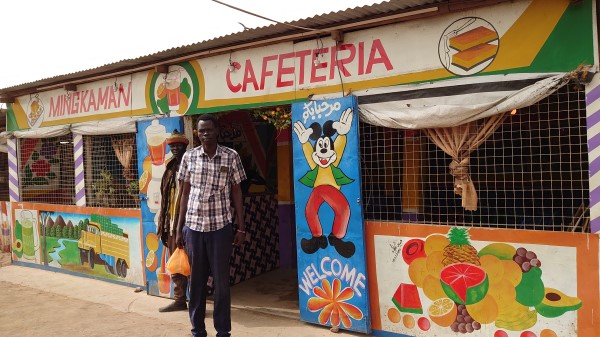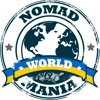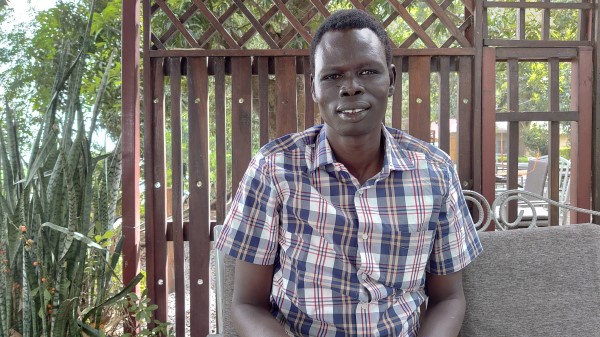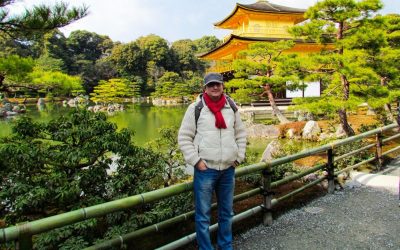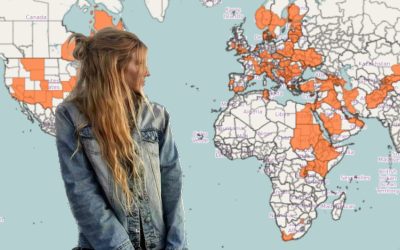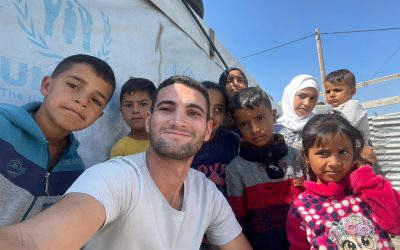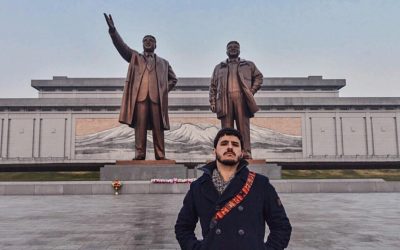South Sudan is the youngest UN country, having achieved full independence less than 9 years ago, in July 2011. It is also one of Africa’s most unexplored places, which is partially due to its seemingly endless civil wars, which have hopefully come to an end following an agreement last year.
Mayom Bul, who we talk with today, is the founder of Metro Safaris – if you want to visit South Sudan, he is certainly the man who can make it all happen… We interviewed him on a pleasant afternoon in mid-March in a cafe frequented by expats by the river Nile in Juba.
Mayom, tell us something about your early years.
I was born in Panyagoor, in the Jonglei state of South Sudan, in 1980 – I don’t know the exact date as we didn’t record dates back then. I grew up in a cattle camp where animals were kept, i grew up like a typical African kld, looking after goats, with my parents and 6 siblings, I am number 5. I belong to the Dinka tribe and speak the Dinka dialect of the Bor Dinka section. Under normal circumstances, and if there had not been a war, I would have probably never left and would still be herding cattle. But life had different plans for me. So, how come I ended up going to school? By 1983, there was war in my area against the central authorities in Khartoum, so in 1987 we fled to Ethiopia and that’s where I started to go to school in a refugee camp. I started learning English. But this was not the end, because Ethiopia itself suffered at the end of the Cold War, as it was aligned with the Soviet Union that had collapsed. So, in 1992, the President of Ethiopia was deposed and we had to flee again to safety but we only spent a few months back in South Sudan because the war made it unsafe… So, my brother and I ended up going to a refugee camp in northern Kenya, near Lodwar. In fact, my brother and I are among the known ‘lost boys of Sudan’ because we were not accompanied by any other family members, we were minors all alone, and I didn’t see my parents from 1987 until 1996 and even that was a coincidence, we met in Kenya…
While I was in Kenya, I continued my schooling until I finished primary and secondary school. There was an NGO called Jesuit Refugee Service which came to the camp looking for determined students who have done well. Of course we had no money to pay for any schooling at the level the Kenyans did, but the NGO took care of this and so I finished Lodwar High School, completing my secondary education in 2000. In 2001, a Canadian NGO called World University Service was offering scholarships for students to study in Canada. I applied and was accepted, and in fact this was not only a student grant but also a resettlement programme, so once you arrived you became a permanent Canadian resident. I studied accounting and economics at the Carlton University in Ottawa and after four years I also got Canadian citizenship.
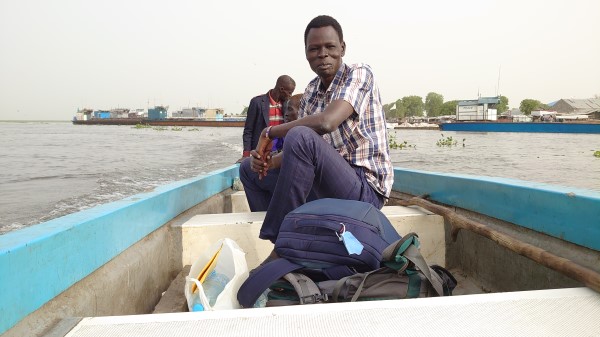
So, what brought you back to South Sudan?
I stayed in Ottawa after graduation working for an inventory coompany but I wasn’t satisfied there. For me, Canada was fantastic of course, people are very kind, accommodating, they don’t discriminate. But I have two countries – South Sudan and Canada. And I remembered when I was given the scholarship, I had been told ‘you will be among the people who can come back and rebuild South Sudan.’ In Canada, with everything I would see, the buildings, the luxuries I was enjoying, it was obvious that someone had created this, had worked to do this – I didn’t need a car because there was a train that someone had built. The idea that my first country has nothing made me decide to go back and help in my little way in the development of South Sudan.
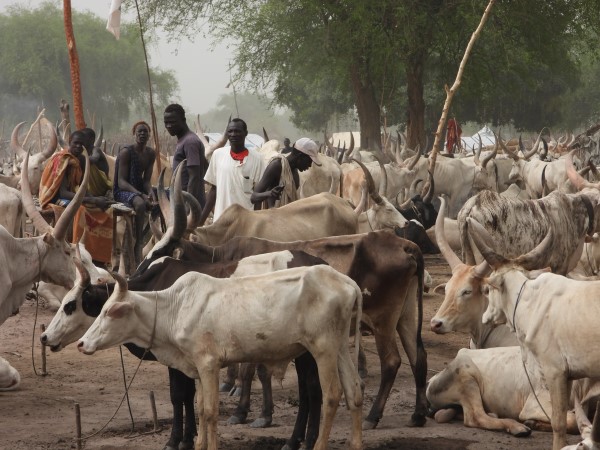
And do you feel you have succeeded in your aim?
Yes, absolutely, step by step. I was always good at writing, and when I first returned, in 2009, people were encouraging me to start a newspaper. So I did, but it didn’t work so well because the number of literate people is low and only UN agencies were able to invest anything in such a venture. So, eventually I got involved in the travel world. An anthropologist from Barcelona I met in Juba was interested in going to the Boma National Park, one of our best ones, as he wanted to study the local tribes you can find there like the Murle and the Katsipo tribe. So we went there and this was during the civil war, a dangerous time. Eventually I formed a company, but you must know that in South Sudan it isn’t like in the west where you can get loans from banks for a venture, here nobody will give you money for anything. At any rate, my company is called Metro Safaris and I do most of the jobs in the company, but of course I have many contacts for logistics and other services. We started very slowly but already this year I have had many people come and a lot of enquiries, now that the war is over. Unfortunately it seems that the coronavirus will now make everything stop.
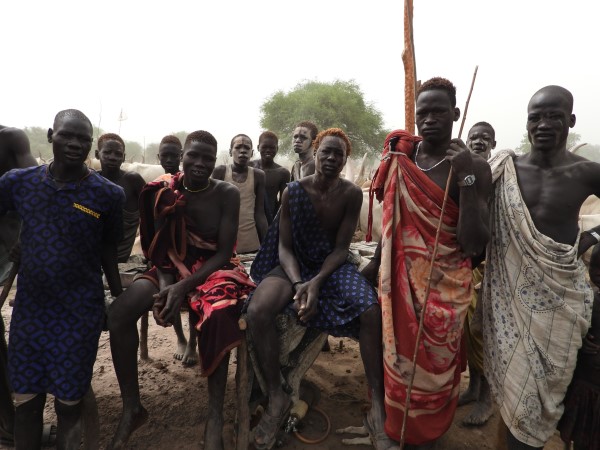
Let’s turn a bit to South Sudan. What makes it special?
When the Europeans came to Africa, the British were coming and at same time Islam was coming to us. The British made South Sudan a closed district as early as the 1930s, you needed a special permit to enter South Sudan. That way, the British were assured that the state of Islam was contained, so that people would not be converted. The only few people who were allowed to come here were missionaires and there were some communities, like Greeks, who had been here even earlier. There were very few areas where anyone went though except for Juba which developed as the centre of activity.
That meant that South Sudan was not impacted by modern culture, schooling etc, all this took a very long time. What this implies is that my country is basically not impacted by modern life. People are still naked, they don’t care who is looking at them. In terms of culture, it is unique. This will eventually change as people learn about modern life, already some cattle herdsmen use mobile phones, but still you can find more authenticity than probably anywhere else. A good example are the Masaai in Kenya – when people go to visit them, it is all acting – the people are very clean, after the ‘show’ they put on their trousers etc. Whereas, in South Sudan, everything is authentic. If someone wants to see a camp using cow urine to dye their hair, this is easy, you can see them putting their head under a urinating cow. I don’t think there is another country that is so unique, with very different tribes.
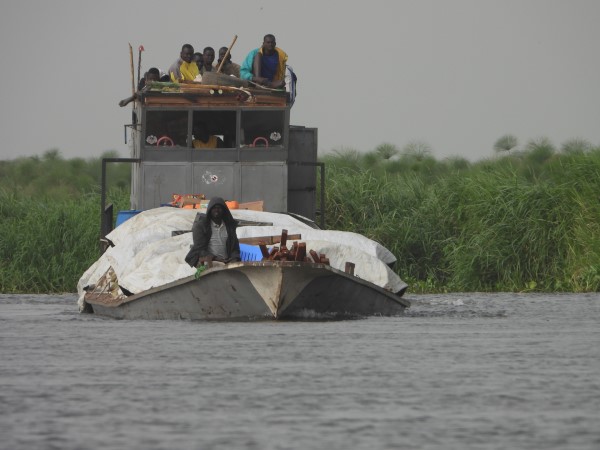
And what specific sights would you say there are in the country, apart from the tribes?
Clearly the beauty of South Sudan, apart from the cultural interest, is its nature. People often confuse it with Sudan and think it is very dry and desert-like here, but this is very far from the truth. We have a large area of wetlands called the Sudd, north of Bor, where you can find a very big variety of fish, hippos, crocodiles, antelopes and unique birds. And you can add the cultural interest of the fishermen in the waterways, so this is extremely unique.
At the same time, South Sudan has 7 National Parks. Of course we still need a lot to develop them properly, for now only the Nimule National Park, near the border with Uganda, is operational in a formal way. In our parks you can see all the so-called ‘Big 5’ for sure elephants, giraffes and lions, though the most common are different types of antelopes.
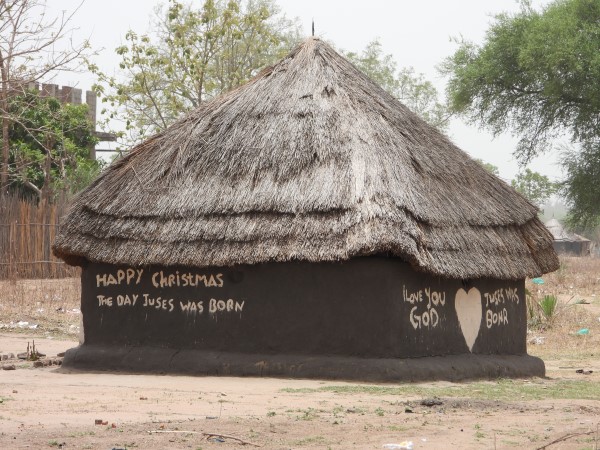
So if you organised a two-week trip to South Sudan, what would you include?
Well, first I would ask the traveller if they prefer culture or wildlife, and accordingly focus the programme to what their interest is. Ideally, you can pick a few tribes and game parks. Now I have a couple here for 28 days, they are seeing 8 tribes, the Sudd and 2 national parks. On such a trip of course, things need to be quite basic. If there is no hotel, which is mostly the case, we use tents. For example in the small town of Tereketa, we go to a village 30 minutes away and stay at a cattle camp with the local tribe. We have a chef with us, we buy our food in advance and we stay in tents.
Their programme looks a little like this:
First we go to the Mundari tribe, which is relatively near to Juba, and spend a night or two at the camp near Tereketa. From there, we then go to see the Bor Dinka cattle camps – this is the tribe I belong to. We spend a comfortable night in Bor at the hotel to have showers and a bit of modern comfort and then head into the Sudd where we sleep near the fisherman villages by the marshland.
Then we come back to Juba and head east towards the Ethiopian and Kenyan borders. We go to Torit where there are some historical areas as the first civil war started there in 1955 – this ended in 1972 with the Addis Ababa agreement. There are some barracks and cemeteries to see. From there we head to see the Latuko tribe, who live on the hills for their own security. Two hours away we find the Boya/Larim tribe who have very interesting architecture in their huts. They have drawings on their bodies and wear unique beads. From there, we head near the Kenyan border to visiit the Toposa tribe who wear animal skins and have their own dances. They are known as very good marksmen and also are known as being rather lawless.
Then we head to Boma National Park where we visit the Murle tribe, who are farmers and interestingly enough socialise based on the age group, with every age group given a certain colour of beads and their cohesion is not based on family relations but age, so those born at the same time are ‘family’. They remove a tooth as a sign of initiation into adulthood. Moreover, the Murle are known for child abduction from other tribes.
There are some areas where we still don’t go for many reasons, mainly as they are still not entirely safe. The Malakal area features the Shilluk tribe who are one of our two tribes which are kingdoms. But there is no road to get there and it would be rather expensive if we had to charter a plane. Hopefully things will get better over time and we will be able to visit them, combining them with the Nuer tribe as well.
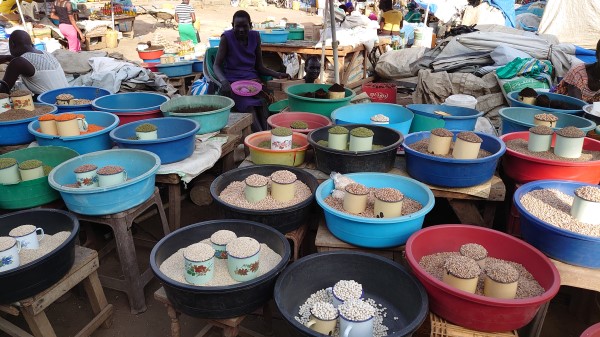
Since the war finished, have you seen improvements in terms of tourism development?
Yes, both in the attitude of the government and in the numbers of tourists. When we started in 2017, we went to Tereketa, and when we arrived, the national security came, the guests were rounded up, they were suspected of doing covert activities etc. There was a general lack of understanding of tourism. Since then, the department of tourism has had a better attitude regarding what we are doing, especially since we have never had an issue with any of our guests. The communities also support us, what we do is basically ecotourism so all benefit from it.
Now things will hopefully improve. As a country, we are getting good reviews. Before people didn’t know they could come, they thought it was hostile and dangerous. One of problems is for example, the UK foreign office or US official advice are against us claiming we are still dangerous. Without coronavirus, I expected we would get about 200 people this year; I’ve already had about 100 people so far, some in large groups.
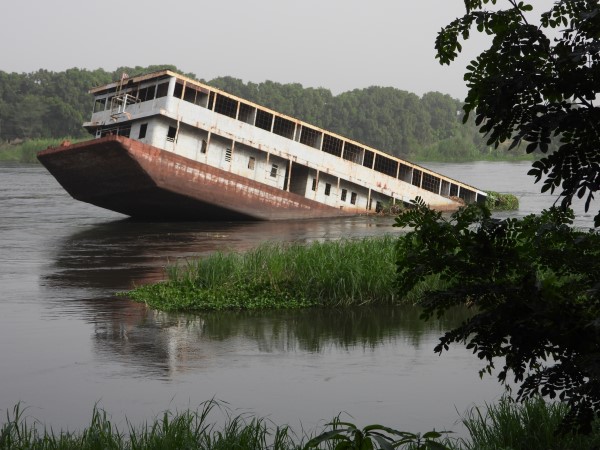
What are some further improvements you would like to see in South Sudan’s tourism industry?
Firstly, the government itself should make thinge easier. Permits cost $150 a day, and a lot of this is for nothing as there is no development, no really good game park. We are the ones promoting the tribes, the government is just sitting there. We need to have functional game parks with some infrastructure and cultures that the government promotes. Also, talking about Juba, it is ridiculous that we pay for a photo permit and despite that we still are afraid of taking photos. The authorities need to be calmer with this and security agents sensitised. The other day we went to the John Garang mausoleum with some Russian visitors and we showed the soldiers our permits and they said we couldn’t visit, we needed a different document directly from the President. But if we had this, they would ask for another.
Secondly, in terms of ourselves as a company. Funding is a limitation, we cannot get loans, so we depend on our current business to develop future business. I would like to have lodges and better accommodation for visitors and we want the general hotel industry to improve. Also, means of transport are a challenge, roads are often non-existent and you would need helicopters to offer really good tours, for example of the herd migrations, but there are no commercial helicopters available in South Sudan at all. So, for sure, there is still a long way to go.
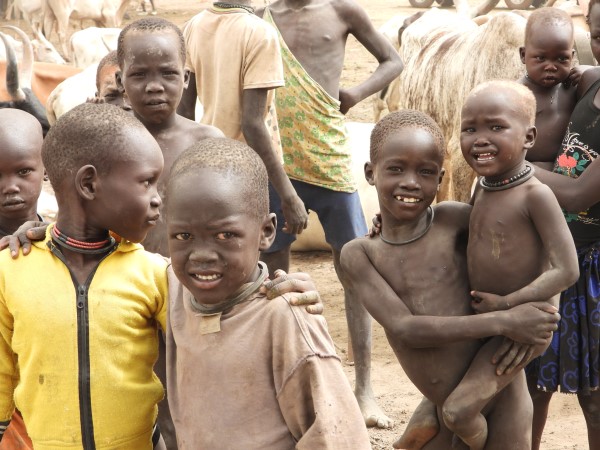
What about Mayom the traveller? Are you a traveller?
I don’t think there is anybody out there who does not like to travel. I would love to go out there and see more places, but I have obligations – on the one hand I want to see my company develop to the point where if I do leave in order to travel, I don’t worry about what is going on here. I’ve only been doing this for less than five years so that’s not a very long time and I will need more time to train people and assess their capacity so that I can trust them. On the other hand, I have a family too. So, only after I make sure both business and family obligations are settled, would I travel the world.
I’ve already been to London and to Amsterdam. I would love to see China and the Middle East and also explore some more European countries; some of my siblings live in Norway and Australia, so those are some obvious future destinations.
Finally our signature question – if you could invite any four people (alive or dead) to dinner, who would you invite and why?
I would want to meet people who want to change the world. Who have had a positive impact on our civilisation. I would say, Nelson Mandela, Martin Luther King and the Queen of England, to ask her how it feels to be relevant in so many different places, even in Canada.
